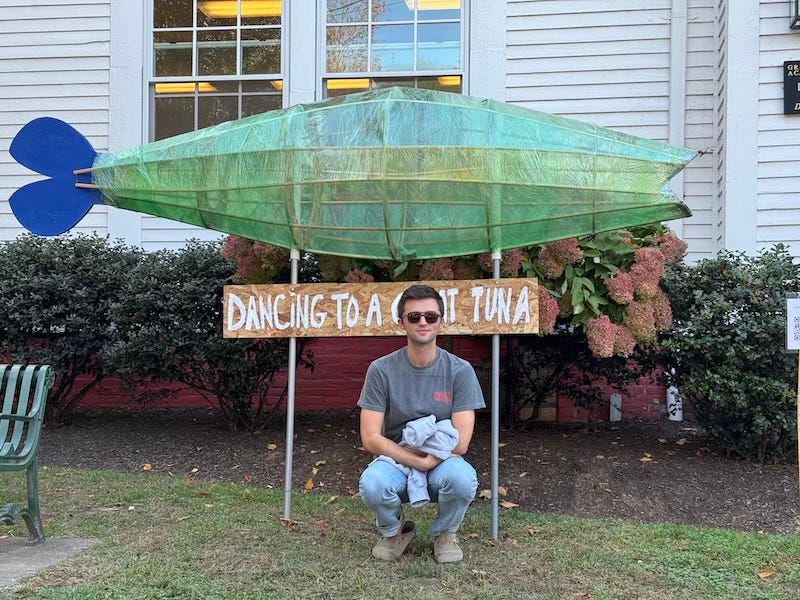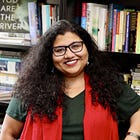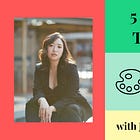A year ago, I launched this newsletter as a space to speak with creative people about their work. I’d lost a number of my books editors to layoffs and restructuring and missed the creative and social outlet I found in speaking with writers about their craft.
Since then, I’ve spoken with animators, yoga teachers, museum curators, podcasters, and tour guides about what they love about their work. After a year of this, I thought I’d drop in with some lessons from the past year.
1. Make your wet, messy folder
“I’ve met so many people who have a binder of things that they want to make, and I’m like, just do it. I always say, when I’m gone, I want to leave behind this messy, kind of wet folder of things where it’s just like, oh yeah, he made puppets, and here’s a book about eating zoo animals, and a weird thing about babies on skateboards. I just love having that repertoire of stuff. I definitely get way more creative fulfillment out of that.”
—Will Heffernan
2. Give room for the feelings related to creative loss
“I’d just finished writing a novel that I had sent out and come to the conclusion that it wasn’t going to get an agent. I had sent it out to about 45 agents, and got some bites, but nobody wanted to represent it. I was coming to terms with that being done, and asking, ‘What am I going to do next?’ I felt this freedom and loss that this book isn’t going to happen, but now I can do whatever the fuck I want. I’m not trying to write for a marketplace; I’m just going to write a weird story for myself. That was the spirit behind putting those words down on the page: I’m just going to write whatever comes into my mind, and I’m not going to censor it for weirdness or marketability or things I don’t want people in my family to read.”
—Taryn Bowe
3. The power of community is immense
“I think about times that communities have faced the challenges that we’re facing now. What did they do? How did they survive it, and how did they come through it? The only thing that makes fighting against fascism possible, fighting against inequity possible is community, and that has been proven time and time again through history. History is always my teacher. Being in a place like St George’s where I can touch the history, I can feel it, I can sit in the cemetery of people that saw Emancipation Day come— that for me, is so powerful. That’s what informs the way that I move through the world, why I love telling stories about the history.”
—Kristin White
4. There is no one way a writer’s life should look
“I am not sure what a writer’s life is or supposed to be. When I first arrived in the States, I thought it was funny and weird—the myth of the writer who drinks a lot, is generally dysfunctional, antisocial, and kind of difficult to be around. Since then, I have read a lot of books about writers’ lives and routines, and while they have been interesting, I can’t say any of them has stuck with me to the point where I have felt, this is it! This is the life I must have! The moral of the story is, there is no ONE writer’s life. You have to work out what’s good for you and what you want in your life, which in my case, is creativity and connection.”
—Sayantani Dasgupta
5. The Artist’s Way changed my relationship to writing
“Talking about wellness and trends for seven years, I literally tried everything. I went to every workshop, I read all the books, I interviewed all the authors, I saw the gurus—I was so immersed in that world, and I gained a strong bullshit detector from that. Come 2020 and the byproduct of what COVID did to our society, I saw a lot of people show their ass, and I was just like, this is not the vibe. I hate all of these people claiming to have the answers, deifying themselves and the guru-fication of things…The thing I love about The Artist’s Way is that you’re not looking to anyone else. It’s all about looking within yourself, and you are steering the ship. Julia, the author, offers great insight, and obviously her words have impacted countless people, but it’s really your own. It gives you complete jurisdiction in the process, and that’s why I love it.”
—Elizabeth Kott
6. Separate the work from “the work.”
“Know that your relationship to the work is not empirically the same thing as the work itself. I think that it is immensely helpful for a writer, especially a debut writer, to work on interrogating and managing their relationship to writing throughout the whole process, so that they can approach the editorial process with calm precision, and not with panic, anxiety, or pride, all of which can affect the revisions and decisions you make on the page.”
—Jemimah Wei
7. Slowing down matters
“I think that it’s becoming harder and harder for us to connect with each other. The more I come across these people, the more I’m like, this is it. This is what we need to keep returning to. We need to slow down. We forgot everything we learned in Covid when we were all forced to slow down a little bit. When we come across those things and we’re actually activated to learn them and to engage with them, I think that they change us in really profound ways that a listicle or a pre-planned itinerary doesn’t quite do.”
—Kelsey Glennon









